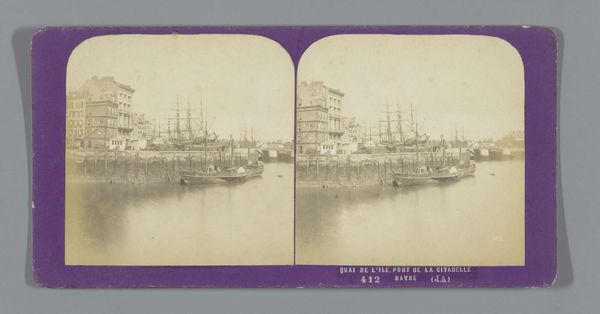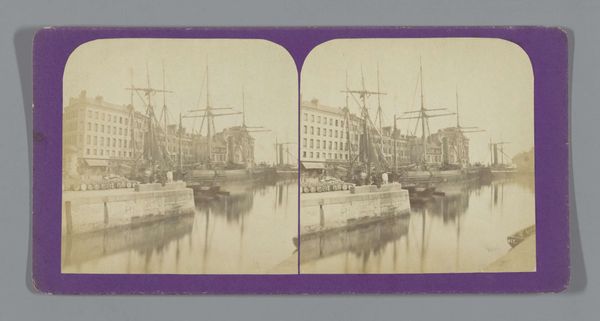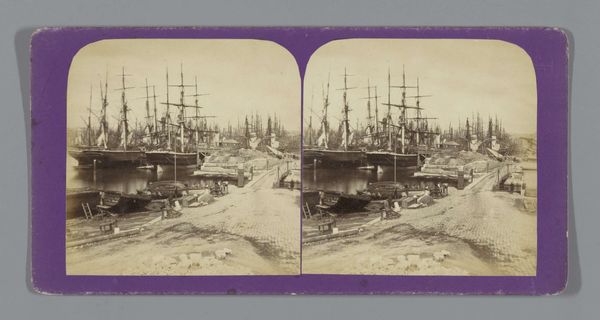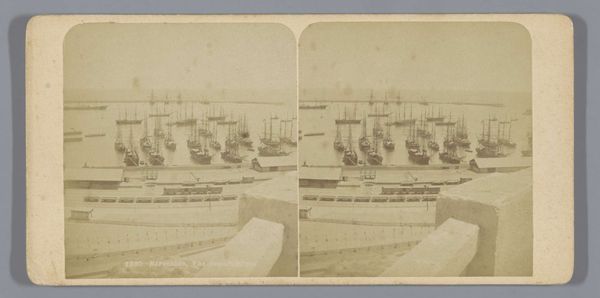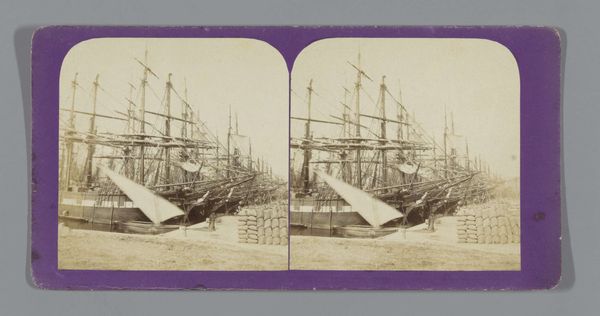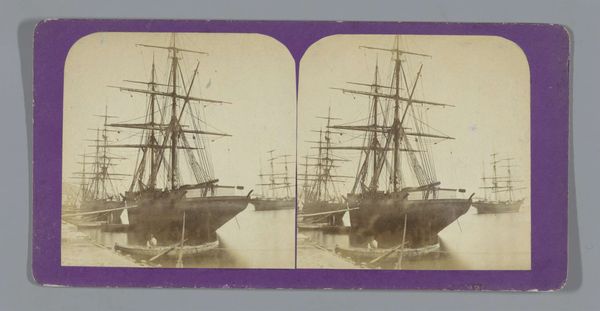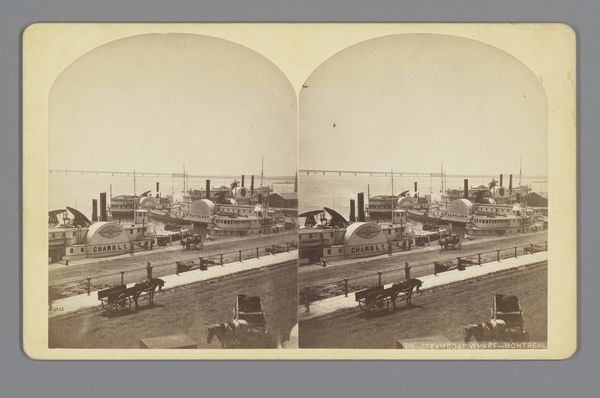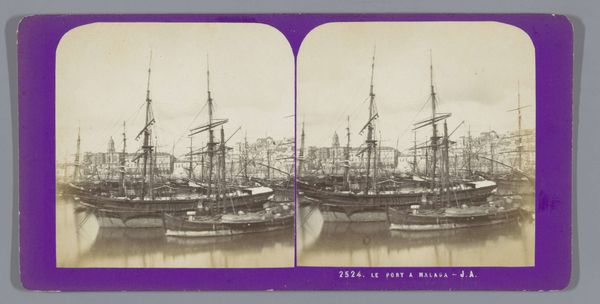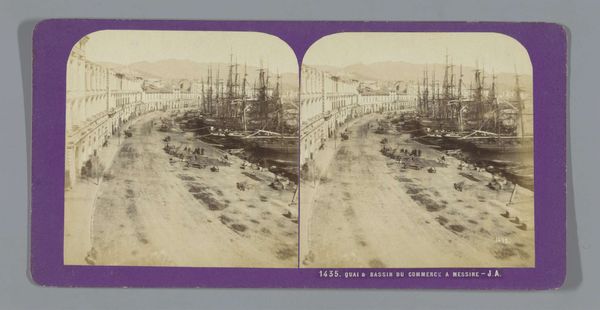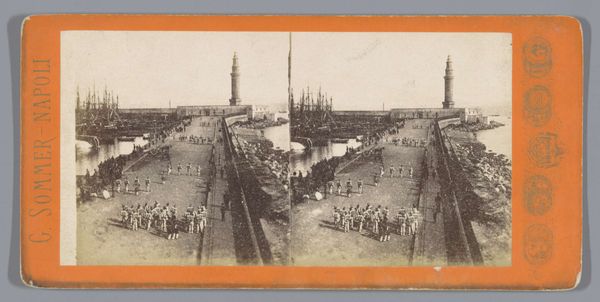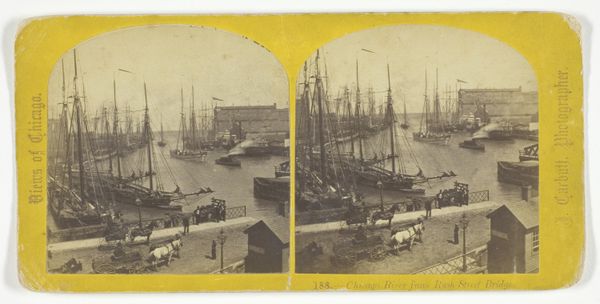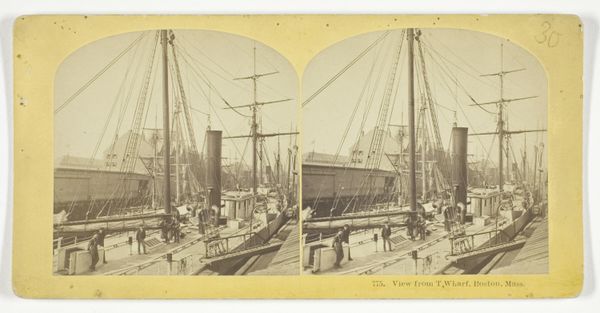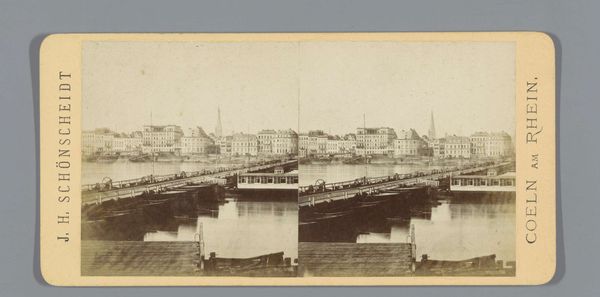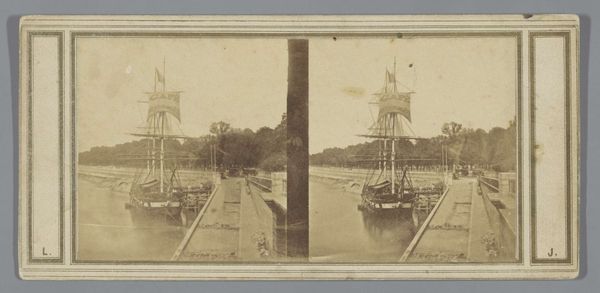
gelatin-silver-print, photography, gelatin-silver-print
#
gelatin-silver-print
#
photography
#
gelatin-silver-print
#
cityscape
Dimensions: height 85 mm, width 170 mm
Copyright: Rijks Museum: Open Domain
Jean Andrieu made this stereo card of the Quai d' Orléans in Le Havre, France sometime in the mid-19th century, using a photographic process. These cards, popular at the time, offered a vivid, almost three-dimensional view of the world. Here, we see a bustling port scene, complete with tall-masted ships and horse-drawn carriages. Le Havre was a major port city, deeply connected to global trade and maritime activity. The image likely served not only as a form of entertainment, bringing distant places to people's homes, but also as a reflection of France's economic power. The rise of photography as an accessible medium also challenged traditional notions of art and representation. Instead of relying on the skills of a painter, this technology allowed for an apparently objective capture of reality. However, as historians, we recognize that every image is constructed. By examining sources such as trade statistics, shipping records, and local histories, we can get a sense of the social and institutional contexts that shaped both the production and the reception of this image.
Comments
No comments
Be the first to comment and join the conversation on the ultimate creative platform.
